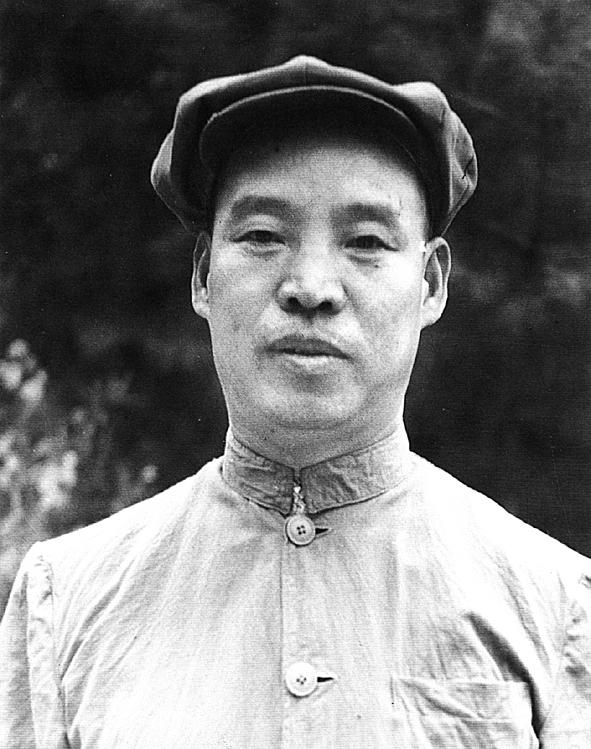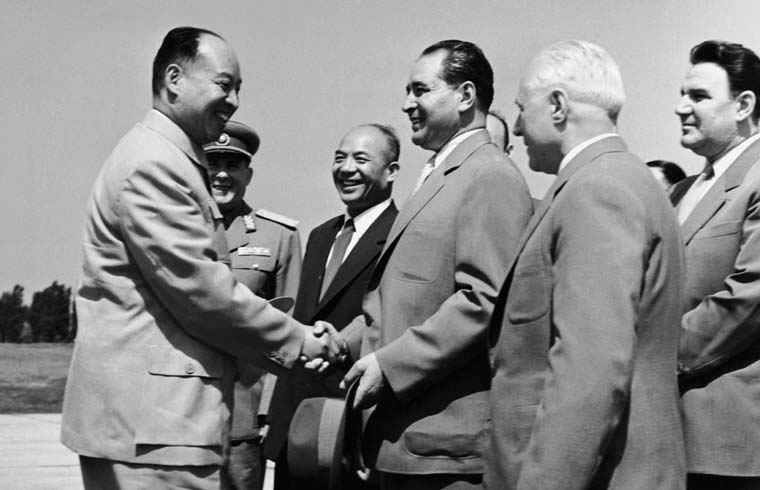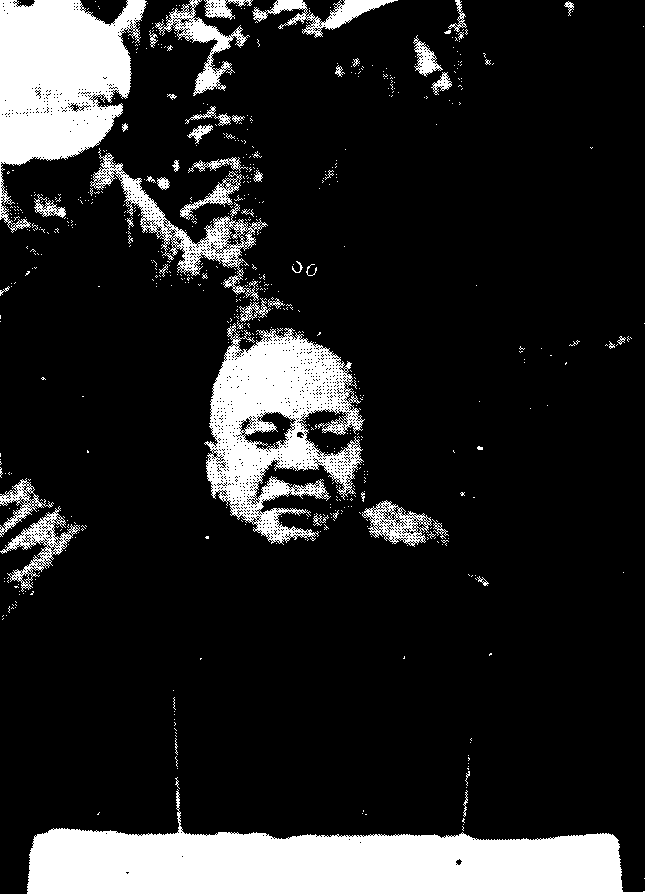<Back to Index>
This page is sponsored by:
PAGE SPONSOR


Peng Zhen (October 12, 1902 – April 26, 1997) was a leading member of the Communist Party of China.
Born in Houma (a town in Shanxi province), Peng was originally named Fu Maogong. He joined the Chinese Communist Party in 1923 as a founding member of the Shanxi Province CP. Arrested in 1929, he continued underground political activities while imprisoned. He was released from prison in 1935 and began organizing a resistance movement against the invading Japanese forces. Around the same time, he was appointed the Organization Department Director of the North Bureau of CPC. He also served on a number of positions as vice - president of the Central Party School and director of the CPC Policy Research Office. In 1945 he served in the history research committee and the organizing committee of the Communist Party's 7th National Congress. He is credited with substantial efforts towards the 1948 capture of Beijing by Communist forces in the Chinese Civil War.
Peng was a member of the CPC Central Committee starting from 1944 as well as member of the Secretariat of the CPC Central Committee. He also held the positions of First Secretary of the Beijing Municipal Committee, and Mayor of Beijing (1951). He was Politburo member from 1956 to 1966.
Peng was appointed head of the Five Man Group in charge of preparing the cultural revolution, but he fell out of favor with Mao Zedong in April 1966 when he attacked Mao's belief that all literature should support the state. He was accused of being an associate to Wu Han's counter revolutionary clique and deposed at a May conference, along with Lu Dingyi, Luo Ruiqing and Yang Shangkun, at the very start of the Cultural Revolution.
Peng survived to be rehabilitated under Deng Xiaoping. He subsequently became Secretary of the Political and Legal Affairs Commission of the CPC Central Committee (1980), a post he already held from late 1950s in the capacity of leader of the Central Politics and Law Leading Group. As Chairman of the Standing Committee of the Sixth National People's Congress (1983), he sought to increase the NPC's power. Peng retired from his leading political positions in 1988.
He is considered one of the Eight Immortals of the Communist Party of China.

Wu Han (Chinese: 吴晗; August 11, 1909 – October 11, 1969) was one of the most important historians in the development of modern historical scholarship in China with his work in the 1930s and 1940s. In the 1940s he was a leading member of the Democratic League, a non - aligned Third Force. After 1949, he was Deputy Mayor of Peking. In November 1965, at the start of the Cultural Revolution, he came under severe attack for his play about an upright Ming dynasty official. He died in prison in 1969.
Wu Han was born in Yiwu, Jinhua, Zhejiang, in 1909. With support from the Wu clan organization and with the money from selling his mother's jewelry, he attended university preparatory schools in Hangzhou and then in Shanghai, where he was inspired by the lectures of Hu Shi. He entered Tsinghua University in 1931 and came under the influence of Tsiang Tingfu. Since he was responsible for the support of his brother and sister, he was unable to go abroad for study. Wu stayed at Tsinghua as a teaching assistant but began to publish important articles on Ming dynasty history using critical techniques to resolve old controversies and raise new questions.
When the war with Japan broke out in 1937, Wu joined National Southwestern Associated University in Kunming. While there, he wrote a full scale biography of the founder of the Ming dynasty, Zhu Yuanzhang, published in 1943, expanded and revised in 1947. He became a leading intellectual in the democratic movement of the 1940s, as well as a widely published essayist. Through his part in the China Democratic League he was enlisted in the founding of the People's Republic in 1949. When the new United Front was founded, as a member of the Democratic League, Wu was asked to take the position of Vice Mayor of Beijing in charge of education and cultural affairs for the 6 county municipal area that became a model for municipalities across the PRC. In the 1950s, Wu represented China abroad on cultural tours and popularized his research at home, using figures from history as models and allegorical figures. He became a member of the Chinese Communist Party secretly in the mid 50's; this was not known by his colleagues or by Party members except at the very highest level. It was only revealed in the Cultural Revolution by the Red Guard accusations after they found his files.
Wu wrote a series of articles and a play originally published in 1951 and revised many times, on the life of Hai Rui, a Ming dynasty official. In 1960 Wu's Beijing opera, Hai Rui Dismissed from Office became a great success. In November 1965 Yao Wenyuan, later one of the Gang of Four, fired one of the opening shots of the Cultural Revolution when he attacked Wu and his play on the grounds that Hai Rui was metaphorically equated with Peng Dehuai, and therefore Mao himself with the unapproachable Ming emperor. Wu admitted ideological mistakes but denied that his motives were counterrevolutionary.
Over the next months the controversy grew, and Wu was finally jailed. Although there were reports that Wu Han committed suicide while in prison in 1969, fellow prisoners later reported that he was beaten in prison about a year before he died. It is also thought his tuberculosis may have recurred so it cannot be established how he died.